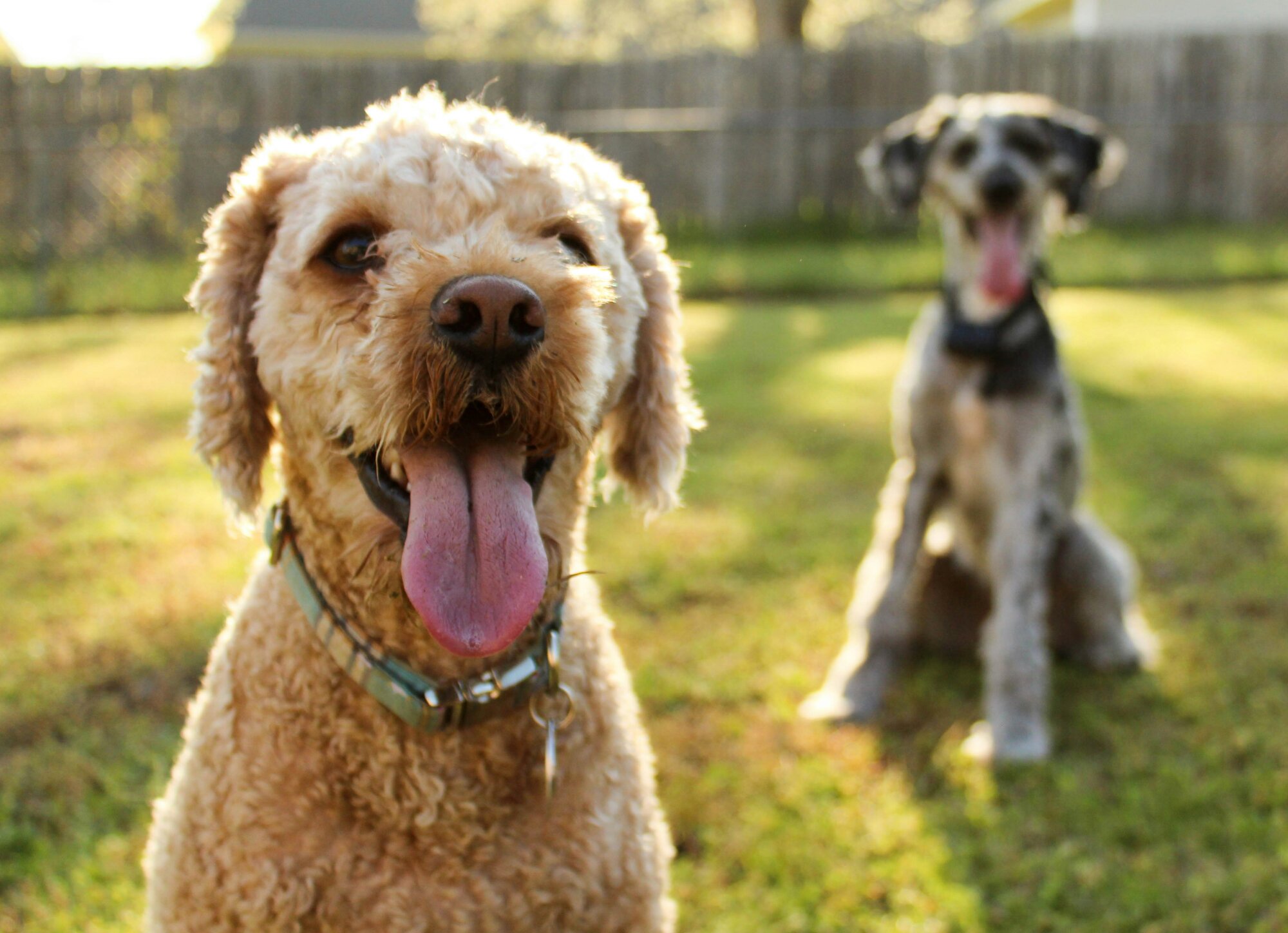Spending time outdoors and playing in the yard are fun parts of being a dog parent. But, there are some risks that come with exposing your dog to other pets, contaminated soil, and other dog feces.
These substances are common at most dog parks and backyards. But did you know that they can carry harmful parasites like roundworms?
Roundworms in dogs are tricky to diagnose — but it's important to know the signs and how to prevent them.
In this article, we'll cover:
- What are roundworms in dogs
- The life cycle of roundworms
- Clinical signs of roundworm infestation
- Treating roundworms in dogs
- 5 ways to prevent roundworms

What are roundworms in dogs

Roundworms (Toxocara canis) are fairly common parasites that live in your dog's intestinal tract. Roundworms feed on partially digested food in your dog's intestines, stealing vital nutrients, vitamins and minerals, and probiotics from the infected dog.
How do dogs get roundworms
In pregnant dogs, larvae can nest in the mother's body in the form of a cyst. During pregnancy, the larvae begin to develop and pass on to newborn puppies through the placenta.
It is common for new puppies to become infected with canine roundworms. This is most common in cases when the mother dog shows no underlying health conditions or signs of roundworms during pregnancy.
Adult dogs and young puppies can also contract and carry roundworms from sniffing or ingesting infected animal or dog feces. Or, from ingesting eggs from feces-contaminated soil. When a dog eats Toxocara canis, the parasites immediately travel to their digestive tract.
Can humans get roundworm infections?
Although rare, yes — it is possible for humans to become infected with roundworms. This would only happen if humans accidentally consumed roundworm eggs.
EXAMPLE
A young child puts an item covered in roundworm-contaminated soil in their mouth.
The life cycle of roundworms

Roundworms have a complicated life cycle. Here are the three life stages of roundworms in dogs and what to expect in each.
Roundworm eggs

Puppies or adult dogs may ingest infective eggs through soil contaminated with dog or cat feces. When this happens, the roundworm eggs stay in your dog's body until they hatch.
VET TIP
Very few eggs are actually passed in dog poop. That's why roundworm infection can be tricky to diagnose in its early stages.
Roundworm larvae

When roundworm eggs hatch, they grow into roundworm larvae. The larvae stage is when these intestinal parasites travel to other parts of your dog's body.
Migrating larvae attach to tissues in your dog's intestines in the form of cysts. Few larvae grow into adults. But, the ones that grow multiply quickly.
Adult worms

Adult roundworms live in your pup's intestinal tract and continue the life cycle by laying more eggs. Adult worms can grow up to roughly six inches in length.
An adult roundworm can lay up to 85,000 eggs per day. As roundworms grow and multiply, they can cause serious dog health problems.

Symptoms of roundworms in dogs

Roundworms can be tricky to diagnose without a vet visit. But, here are some common roundworm symptoms in infected dogs.
- Pot bellied appearance
- Diarrhea
- Vomiting
- Weight loss
- Stunted growth in growing puppies
In some cases, roundworm infection can turn into a condition called Visceral Larva Migrans. An enlarged liver, severe infections, and malnutrition are clinical signs of this condition.
Vets make a definitive diagnosis by examining your dog's feces with a fecal exam. Infected fecal samples may have visible adult roundworms that are a few inches long. And, you may even see adult worms in your dog's vomit.
VET TIP
If you believe your growing puppy or adult dog may be suffering from roundworms, keep a fecal sample to bring to your vet for testing during your next dog check up.
How to get rid of roundworms in dogs
Roundworms in dogs are tricky to diagnose. But, there are plenty of options for roundworm treatment after diagnosis.
After diagnosis through testing on your dog's feces, your vet will likely prescribe a deworming medication. Dewormers help control roundworms and roundworm infections by killing and paralyzing the parasites.
Common deworming medications include:
- Pyrantel
- Fenbendazole
- Milbemycin
- Moxidectin

4 ways to prevent roundworms
The best way to keep your dog healthy is by preventing roundworms in the first place. Here are four ways to limit the risk of roundworms in dogs.
1. Use monthly heartworm medication.
Many heartworm preventives also cover roundworms in dogs. Heartworm prevention medication usually comes in the form of a chewable tablet that you give your dog every month. Talk to your veterinarian about the safest heartworm prevention for your dog.
Using a heartworm prevention medication every month will also help prevent future infections. The American Heartworm Society recommends year-round heartworm prevention for protection against heartworms, hookworms, and roundworms.
2. Visit your vet for routine deworming.
Regular fecal exams and deworming can help catch cases of roundworms in dogs quickly. Puppies can start deworming every few weeks starting at three weeks of age.
If you have an infected litter of puppies, visit your doctor of veterinary medicine for deworming. And, if you have a pregnant pup, talk to your vet about deworming to lower the chance of passing roundworm infection to her puppies.
3. Avoid wild animals and feces.
It can be beneficial to keep your dog away from other animals and their feces. Small animals like rabbits, rodents, and stray cats are likely to carry tapeworm or roundworms, especially if they have a pot bellied appearance.
Most dogs, puppies, and other pets should have protection from roundworms with heartworm prevention. But, it's better to be on the safe side and avoid contact with other dogs and puppies you don't know.
4. Keep your yard clean.
To avoid the risk of roundworms, clean up dog poop and other wild animals' feces in your yard. Throw away poop properly, and keep children, play sets, and toys away from the areas where your dog takes their potty breaks.

Although roundworms in dogs and puppies can be tricky to identify, it's important to start treatment right away. And, keep your dog protected from future infections with monthly heartworm prevention.

